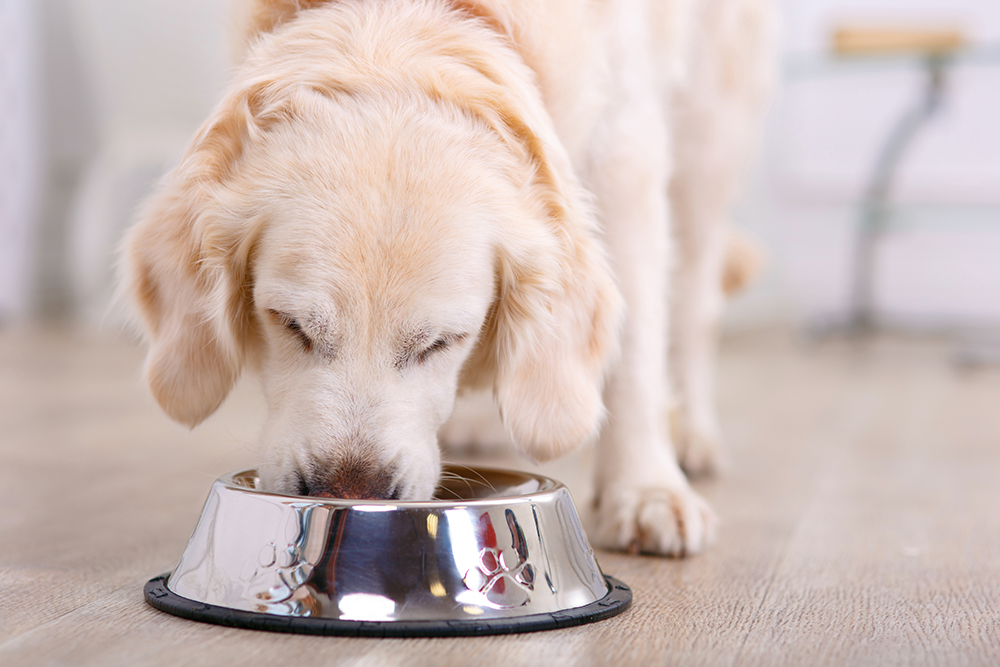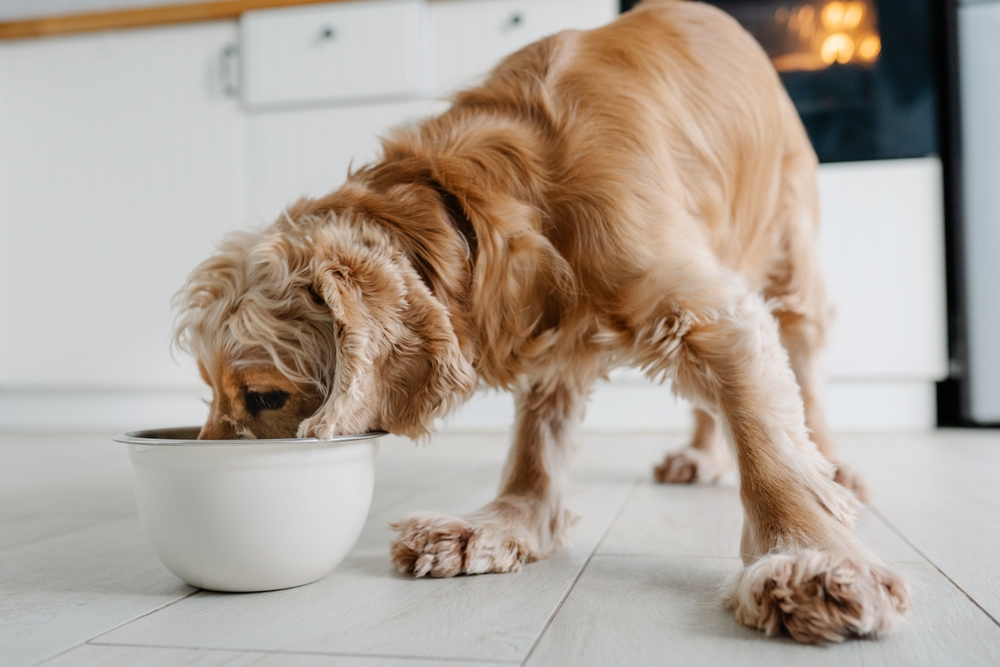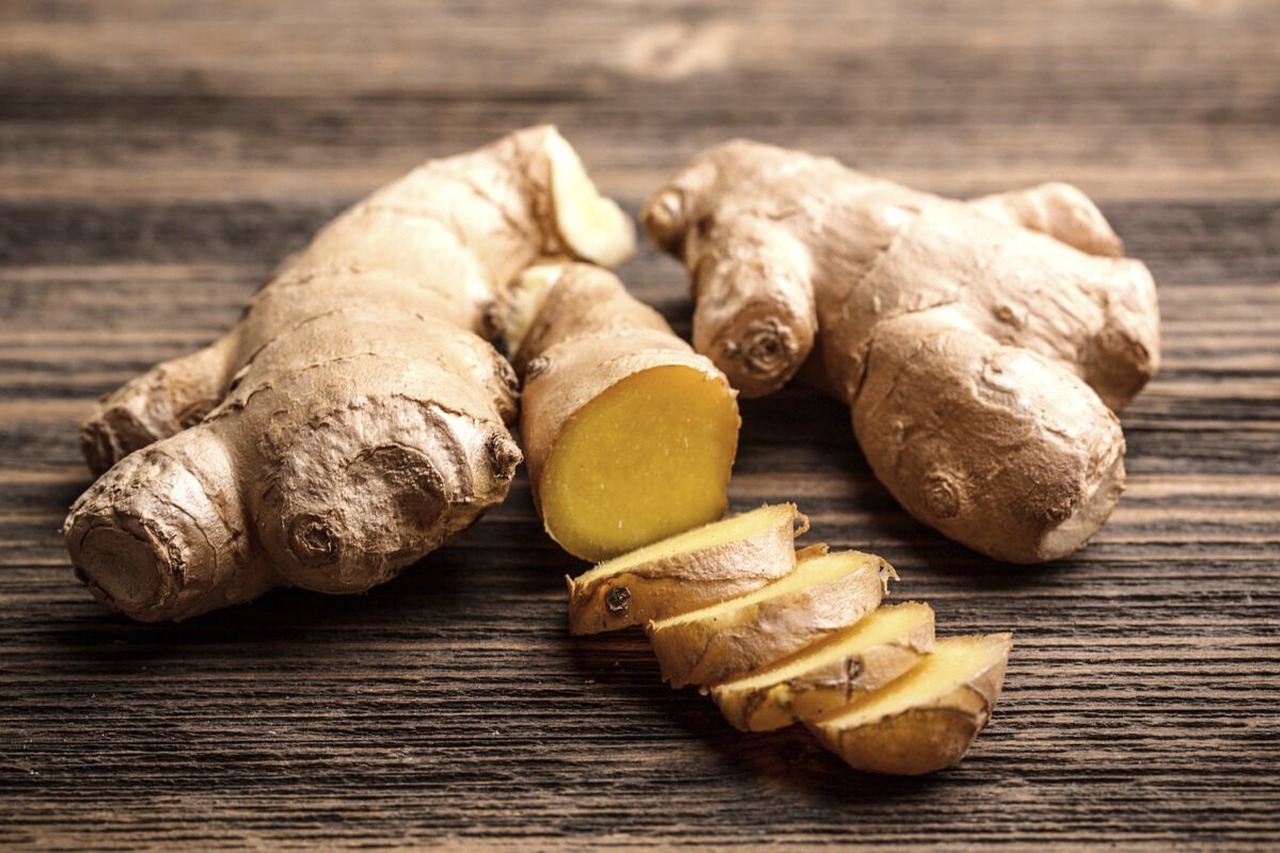Wasabi is known for its strong, spicy flavor and is enjoyed for its powerful kick. Typically served as a paste, wasabi comes from the underground stem of the wasabi plant (Eutrema japonicum), which is often referred to as Japanese horseradish for its similar taste profile. Many Japanese restaurants and takeaways in the West use horseradish paste and green food coloring to replicate genuine wasabi.
Although it is not toxic to dogs, Wasabi is very spicy and it can cause discomfort and pain to your dog’s mouth and stomach. It can also cause vomiting and diarrhea. If your dog has consumed a small amount of wasabi from your plate, it is unlikely to cause major illness, but it can cause your dog to try and get rid of the flavor and the effects and it may lead to sneezing, rubbing of the face, and even hyperactivity.
Most dogs dislike the taste and the effects of the spicy condiment, and they will try their best to avoid it. However, even if your dog doesn’t mind the sensation and flavor, you should avoid feeding it. There are healthier and safer alternatives to give your four-legged friend.


Why Can’t Dogs Eat Wasabi?
Wasabi is loved for its strong flavor. It delivers a ferocious level of heat, although it does dissipate more quickly than the heat of a hot chili. It has a very similar taste and effect to horseradish, which has earned it the nickname of Japanese horseradish and is the reason that a lot of restaurants outside Japan use horseradish and green food coloring to create a similar-tasting paste.
However, the same heat that makes it popular with humans is also what makes it unsuitable for dogs. Fortunately, most pets will turn their noses up at wasabi because they dislike the strong flavor. But, this isn’t always the case. We all know dogs that will eat anything or that will investigate any potential food by chewing it first before ultimately regretting the decision.
Wasabi is not toxic to dogs, so it shouldn’t cause any long-lasting damage if yours has eaten a small piece of the unprepared plant or licked some of the paste off your plate. However, it is very spicy so you shouldn’t feed wasabi to dogs in any amount. What’s more, wasabi paste or other wasabi products can contain additional flavors and ingredients that are also harmful to dogs.


Dangers of Feeding Wasabi to Dogs
Although wasabi isn’t toxic to dogs, it can cause some health problems, especially if your dog has managed to consume a lot of it, depending on the type of wasabi product eaten.
- Irritation – In most cases, dogs will lick or eat a very small amount of wasabi before deciding they aren’t keen on the spicy condiment. Even a small amount can cause considerable discomfort, which will lead to your dog drooling, licking and even scratching around their nose. The heat of the wasabi may also cause a dog’s eyes to run, so look for signs of discomfort especially around the mouth, nose, and eyes.
- Upset Stomach – Wasabi causes gastrointestinal irritation which can lead to signs of gastroenteritis such as acid reflux, vomiting, and diarrhea. In severe cases, dogs can be off their food or become dehydrated because of the effects of wasabi.
- Additives – Pure wasabi is not toxic, but rarely do we have pure wasabi at home. Typically, wasabi paste and other wasabi-based condiments contain other ingredients. These ingredients can include garlic and onion, which are toxic to dogs and can be damaging if fed in too large quantities. If your dog has managed to eat an entire tube of commercially bought wasabi paste, check the ingredient list to ensure that a spicy mouth is the biggest potential problem they are facing.
- Glucosinolates – Glucosinolates are compounds formed in plants like the wasabi plant, and are released as airborne isothiocyanate. There is one case of wasabi ingestion leading to collapse in a human which was nicknamed “sushi syncope” It was possibly related to these compounds however, there is minimal evidence.


What to Do If Your Dog Eats Wasabi
The best course of action, if your dog has eaten wasabi, depends on how much they have eaten, as well as the type of wasabi product consumed.


1. Check Ingredients
The first thing to do is check the ingredient list of the wasabi product your dog has eaten. If it was pure wasabi, it isn’t toxic. However, look for additional ingredients including garlic and onion powder.
There may be toxic xylitol in that ingredient list. Wasabi might cause discomfort, but some additional ingredients can be a lot worse.
2. Don’t Panic
Whatever your dog has eaten, you need to stay calm. If it is just wasabi, the drool, and the irritation will pass. You will need to speak to a vet and calmly provide as much information as possible while following the instructions and guidance they offer.
3. Provide Water
If your dog has eaten wasabi, try providing water. They will drool a lot, and this will cause them to lose hydration. If they also vomit or have diarrhea, this will cause further hydration loss. And, the heat of the wasabi can irritate the esophagus and throat.
Water will help calm the burning sensation and it will also help ensure your dog stays well hydrated.


4. Monitor Them
Monitor your dog, especially looking for signs of gastrointestinal upset. It can take some time to work through your dog. If your dog has any vomiting or diarrhea they will require veterinary attention.
5. Consult a Vet
If your dog has eaten a lot of wasabi, something toxic, if they have a severe reaction to wasabi, or if they suffer episodes of vomiting or diarrhea, contact a vet immediately. They will want to know what your dog has eaten, as well as the effects it has had on your dog.
They may recommend action you can take at home, or they may need to see your dog.


Can Dogs Eat Sushi?
Wasabi is a common addition to sushi, which is a combination of seaweed, rice, and vegetables. Some sushi also contains raw fish. Different sushi dishes contain different ingredients, some of which are perfectly safe for dogs. Others should only be fed in small amounts and only occasionally, and some should be avoided altogether.
Tempura batter is high in fat, potentially leading to stomach upset or even pancreatitis. Consider the individual ingredients before feeding any sushi to your dog.
Can Dogs Eat Raw Fish?
A common ingredient in sushi is raw fish. Even sashimi-grade fish can carry bacteria that are harmful to dogs, so you should avoid feeding any sushi that contains these raw ingredients.
Can Dogs Eat Ginger?
Ginger is safe for dogs. It can be fed fresh, but sushi typically contains pickled ginger which is acidic and contains added salt/sugar, making it an unhealthy option for dogs, potentially also leading to a stomach upset.


Can Dogs Eat Rice?
Rice is commonly found in commercial dog foods and vets often advise that it be fed to sick dogs because it is bland and gentle. It is easy to digest and has low levels of fiber. Therefore, the rice is safe for dogs to consume. However, care needs to be taken if the rice contains other potentially harmful ingredients and additives.
Can Dogs Eat Seaweed?
Although not as common, seaweed is another ingredient that is found in some commercial dog foods. Ensure that the seaweed sheets, which are also commonly used in sushi dishes, do not contain additional salt or sugar, before feeding to your dog, however.
And, seaweed can be naturally salty, so make sure your dog has access to fresh drinking water and that you don’t feed too much seaweed in a single sitting to avoid causing dehydration.


Conclusion
Wasabi is an ingredient commonly found as an accompaniment to sushi and in a range of other Japanese dishes. It is ferociously spicy, which is why it divides opinions among people and is one of the reasons you shouldn’t feed this to your dog. Commercial wasabi paste, and other wasabi products, commonly contain additional ingredients that may be toxic or dangerous to dogs as well.
While your dog should be okay after eating a small amount of wasabi, because it isn’t toxic, they might suffer some discomfort and may even endure some vomiting and diarrhea due to the irritating nature of the ingredient.
Featured Image Credit: Narsil, Shutterstock
